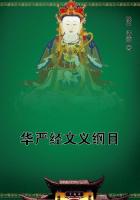It was interesting to note how, able though he was, and bound up with this vast street-railway enterprise which was beginning to affect several thousand men, his mind could find intense relief and satisfaction in the presence and actions of Stephanie Platow.
It is not too much to say that in her, perhaps, he found revivified the spirit and personality of Rita Sohlberg. Rita, however, had not contemplated disloyalty--it had never occurred to her to be faithless to Cowperwood so long as he was fond of her any more than for a long time it had been possible for her, even after all his philanderings, to be faithless to Sohlberg. Stephanie, on the other hand, had the strange feeling that affection was not necessarily identified with physical loyalty, and that she could be fond of Cowperwood and still deceive him--a fact which was based on her lack as yet of a true enthusiasm for him. She loved him and she didn't. Her attitude was not necessarily identified with her heavy, lizardish animality, though that had something to do with it; but rather with a vague, kindly generosity which permitted her to feel that it was hard to break with Gardner Knowles and Lane Cross after they had been so nice to her. Gardner Knowles had sung her praises here, there, and everywhere, and was attempting to spread her fame among the legitimate theatrical enterprises which came to the city in order that she might be taken up and made into a significant figure. Lane Cross was wildly fond of her in an inadequate way which made it hard to break with him, and yet certain that she would eventually. There was still another man--a young playwright and poet by the name of Forbes Gurney--tall, fair, passionate--who had newly arrived on the scene and was courting her, or, rather, being courted by her at odd moments, for her time was her own. In her artistically errant way she had refused to go to school like her sister, and was idling about, developing, as she phrased it, her artistic possibilities.
Cowperwood, as was natural, heard much of her stage life. At first he took all this palaver with a grain of salt, the babbling of an ardent nature interested in the flighty romance of the studio world. By degrees, however, he became curious as to the ******* of her actions, the ease with which she drifted from place to place--Lane Cross's studio; Bliss Bridge's bachelor rooms, where he appeared always to be receiving his theatrical friends of the Garrick Players; Mr. Gardner Knowles's home on the near North Side, where he was frequently entertaining a party after the theater.
It seemed to Cowperwood, to say the least, that Stephanie was leading a rather free and inconsequential existence, and yet it reflected her exactly--the color of her soul. But he began to doubt and wonder.
"Where were you, Stephanie, yesterday?" he would ask, when they met for lunch, or in the evenings early, or when she called at his new offices on the North Side, as she sometimes did to walk or drive with him.
"Oh, yesterday morning I was at Lane Cross's studio trying on some of his Indian shawls and veils. He has such a lot of those things--some of the loveliest oranges and blues. You just ought to see me in them. I wish you might."
"Alone?"
"For a while. I thought Ethel Tuckerman and Bliss Bridge would be there, but they didn't come until later. Lane Cross is such a dear. He's sort of silly at times, but I like him. His portraits are so bizarre."
She went off into a description of his pretentious but insignificant art.
Cowperwood marveled, not at Lane Cross's art nor his shawls, but at this world in which Stephanie moved. He could not quite make her out. He had never been able to make her explain satisfactorily that first single relationship with Gardner Knowles, which she declared had ended so abruptly. Since then he had doubted, as was his nature; but this girl was so sweet, childish, irreconcilable with herself, like a wandering breath of air, or a pale-colored flower, that he scarcely knew what to think. The artistically inclined are not prone to quarrel with an enticing sheaf of flowers.
She was heavenly to him, coming in, as she did at times when he was alone, with bland eyes and yielding herself in a kind of summery ecstasy. She had always something artistic to tell of storms, winds, dust, clouds, smoke forms, the outline of buildings, the lake, the stage. She would cuddle in his arms and quote long sections from "Romeo and Juliet," "Paolo and Francesca," "The Ring and the Book,"
Keats's "Eve of St. Agnes." He hated to quarrel with her, because she was like a wild rose or some art form in nature. Her sketch-book was always full of new things. Her muff, or the light silk shawl she wore in summer, sometimes concealed a modeled figure of some kind which she would produce with a look like that of a doubting child, and if he wanted it, if he liked it, he could have it.
Cowperwood meditated deeply. He scarcely knew what to think.
The constant atmosphere of suspicion and doubt in which he was compelled to remain, came by degrees to distress and anger him.
While she was with him she was clinging enough, but when she was away she was ardently cheerful and happy. Unlike the station he had occupied in so many previous affairs, he found himself, after the first little while, asking her whether she loved him instead of submitting to the same question from her.
He thought that with his means, his position, his future possibilities he had the power to bind almost any woman once drawn to his personality; but Stephanie was too young and too poetic to be greatly impaired by wealth and fame, and she was not yet sufficiently gripped by the lure of him. She loved him in her strange way; but she was interested also by the latest arrival, Forbes Gurney.















